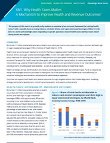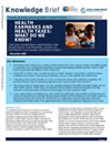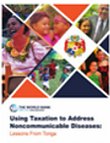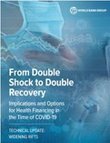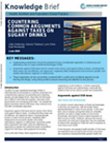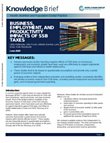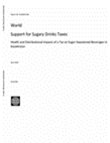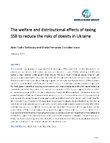Why Health Taxes?
Health taxes are taxes imposed on unhealthy products, such as tobacco, alcohol, or sugar-sweetened beverages. Consumption of these products is linked with many non-communicable diseases, such as heart disease, cancer, obesity, and diabetes.
The primary purpose of health taxes is to reduce consumption of these unhealthy products, by design they change the relative price of the targeted products relative to other products. When well designed — with a focus on the right rates, structures, base and supported by complementary administrative measures — they constitute one of the most cost-effective ways to curb the use of unhealthy products and save lives while raising much-needed revenue.









